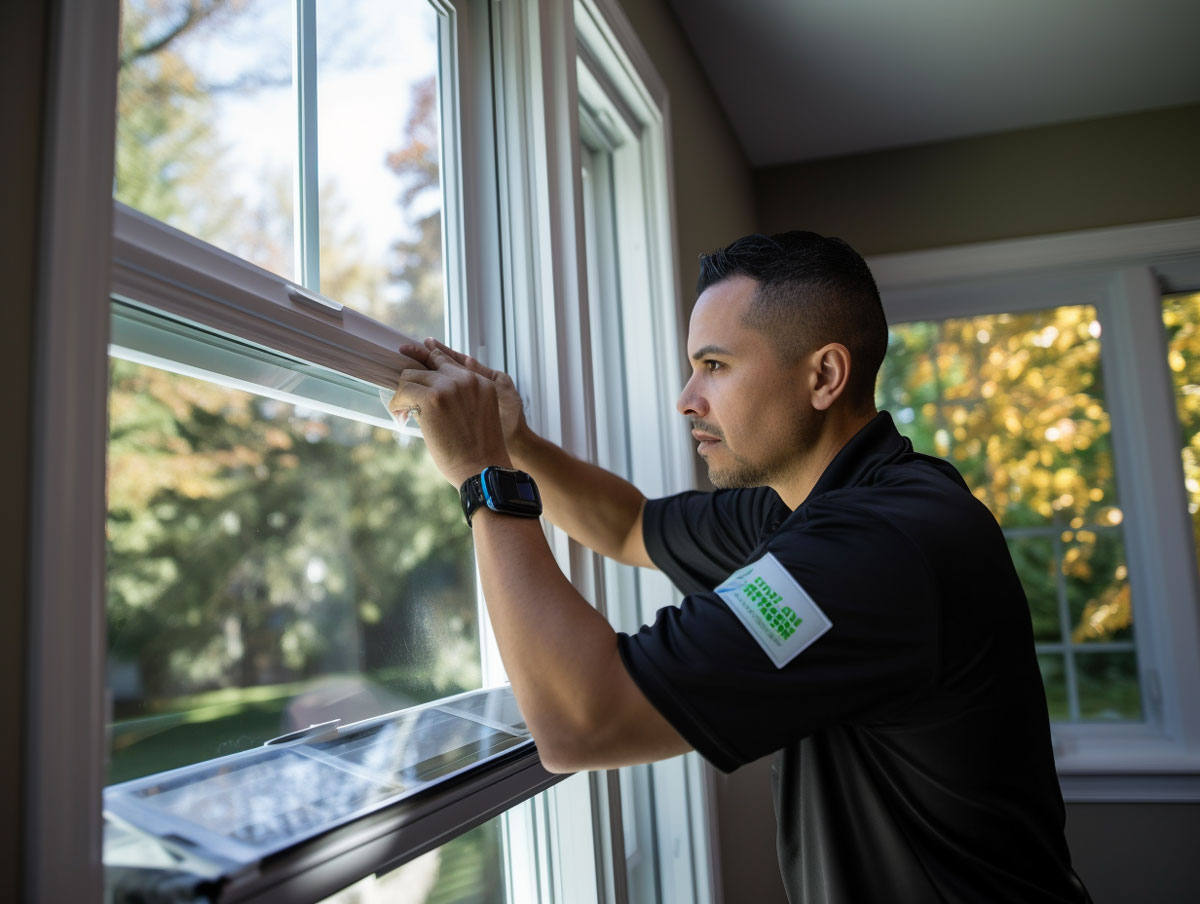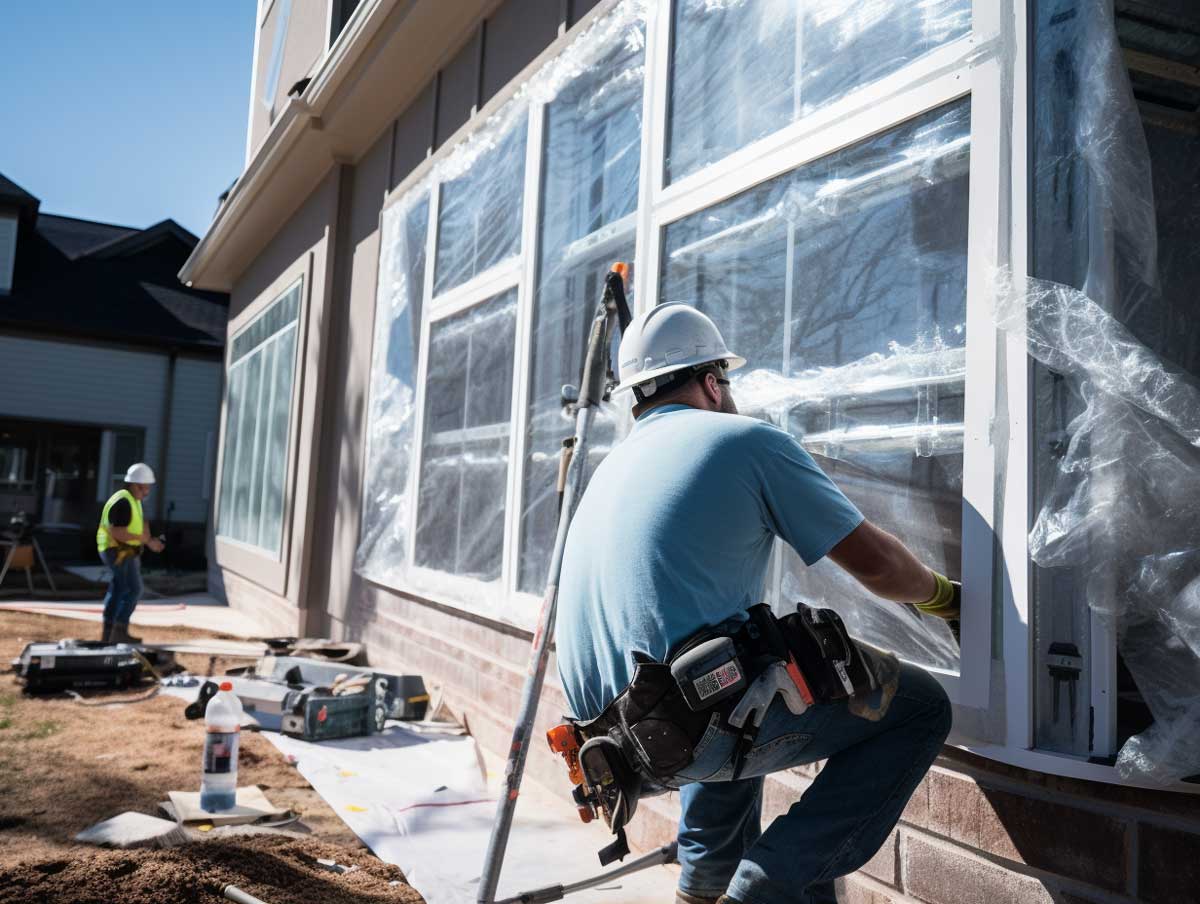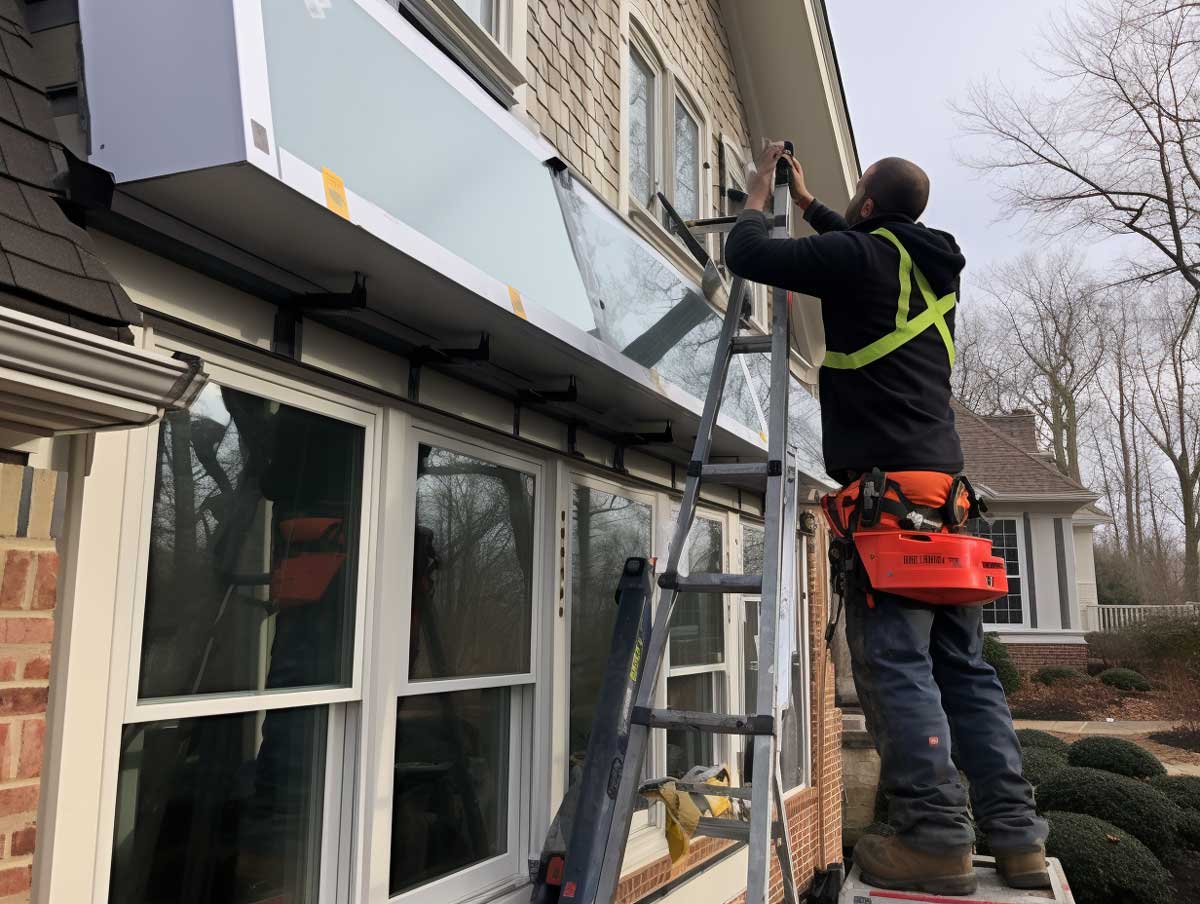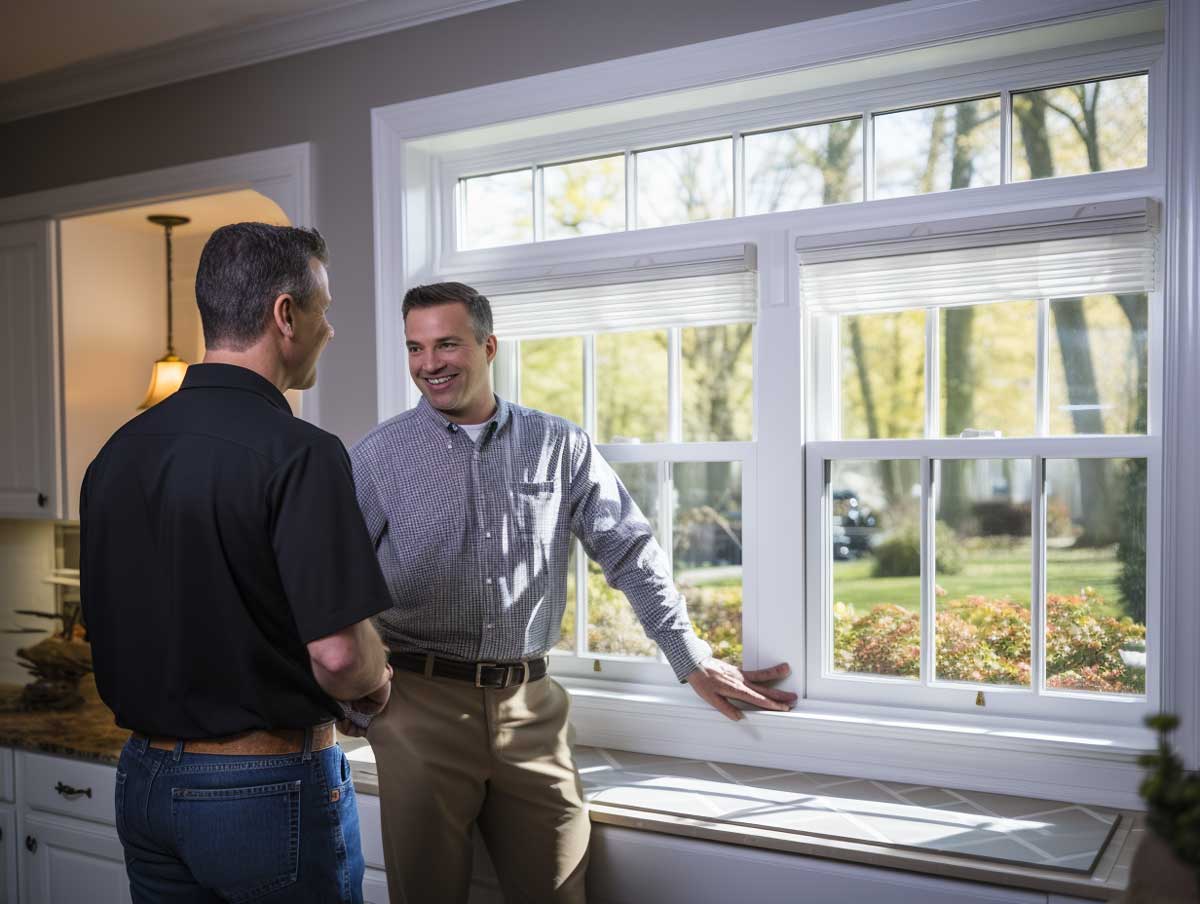In the pursuit of energy efficiency and environmental conservation, various governments around the world have initiated programs to assist homeowners in upgrading their homes. One such initiative is the provision of grants to replace old, inefficient windows with new, energy-efficient ones. If you're considering taking advantage of these grants, this guide will walk you through the process in a comprehensive and authoritative manner.
Learn how to avail government grants to replace windows for free. This comprehensive guide provides step-by-step instructions, from understanding the benefits and determining your eligibility to submitting your application and enjoying the benefits. Plus, discover other free window replacement grants and specific programs for senior citizens.
Understand The Benefits
Before diving into the application process, it's essential to understand why these grants are offered:
-
Energy Efficiency: New windows can significantly reduce the amount of energy required to heat or cool a home, leading to reduced utility bills.
-
Environmental Impact: By consuming less energy, homes contribute less to greenhouse gas emissions, promoting a healthier environment.
-
Increased Property Value: Upgraded windows can enhance the aesthetic and functional value of a home.
Determine Your Eligibility
Not every homeowner will qualify for these grants. Eligibility criteria can vary, but generally, they might include:
-
Owning and residing in the property
-
The current windows being a certain age or showing signs of significant wear
-
Meeting specific income requirements
Research Available Programs
Different levels of government – federal, state, and local – might offer window replacement grants. Start by:
-
Visiting the official website of the U.S. Department of Energy
-
Checking with your state's energy office or department of housing
-
Reaching out to local government offices or community development organizations
Gather Necessary Documentation
To prove your eligibility, you'll likely need to provide:
-
Proof of homeownership (e.g., a deed or mortgage statement)
-
Recent utility bills to demonstrate the inefficiency of current windows
-
Income statements or tax returns
Submit Your Application
Once you've gathered all necessary information:
-
Complete the application form provided by the grant program. Ensure all details are accurate to avoid delays or rejections
-
Attach all required documentation
-
Submit the application before the deadline. Some programs might have limited funding and operate on a first-come, first-served basis
Await Approval And Take Next Steps
After submission:
-
Monitor your application's status. Some programs might offer online tracking.
-
If approved, follow the grant's guidelines for selecting a contractor and purchasing windows.
-
Ensure the installation meets the program's standards to retain your grant eligibility.
Maintain Records
Even after the installation:
-
Keep all receipts and warranties.
-
Retain copies of your application and approval for your records.
Post-Installation Inspection
After the installation of your new windows, an inspection may be required to ensure that the work meets the standards set by the grant program. This inspection may be conducted by a representative from the grant program or a third-party inspector. It's crucial to pass this inspection to maintain your grant eligibility and avoid having to repay the funds.
Reporting And Compliance
Once your new windows are installed and have passed any necessary inspections, you may need to submit a final report to the grant program. This report typically includes details of the work completed, copies of receipts, and possibly a statement from the contractor. Be sure to comply with all reporting requirements to avoid any potential issues with the grant program.
Enjoy The Benefits
With the completion of the window replacement project, you can now enjoy the benefits. These include lower energy bills, a more comfortable living environment, and the satisfaction of contributing to environmental conservation. Remember, the benefits of this project extend beyond just financial savings; you're also playing a part in reducing energy consumption and promoting sustainability.
Spread The Word
After successfully navigating the grant process, consider sharing your experience with others. Many homeowners are unaware of the availability of these grants or may be intimidated by the application process. Your firsthand knowledge can help demystify the process and encourage others to take advantage of these opportunities.
Federal Window Replacement Programs
The federal government does not directly provide window replacement grants to low-income families or senior citizens. Instead, the funds trickle down through state agencies to local providers that offer specific free energy-efficient upgrades to eligible homeowners. In 2023, low-income families and seniors most frequently qualify for free window and door replacement grants through the Weatherization Assistance Program (WAP). Its primary mission is to reduce heating and cooling costs by improving the energy efficiency of homes. The Department of Energy (DOE) funds WAP, while local companies implement the program following their guidelines. They prioritize projects using a Savings Investment Ratio (SIR).
Local Providers
Low-income homeowners apply for the federal government free window replacement program through a local WAP-affiliated entity. The state agency or designated contractor will determine if you qualify. You can learn how to apply for WAP at this online resource. Get the contact information for your local agency. Your state could have a single online application, while others will refer you to a list of participating organizations. Complete the application process by providing proof of income from the previous year and household size. Prepare to have a state-approved provider send a representative to your home to perform an energy audit to determine if you are eligible for free services based on the Savings Investment Ratio (SIR).
Qualifications
Low-income families and seniors must meet specific qualifications before the local WAP organization utilizes the grant for energy-efficient window and door replacement at no cost to the homeowner. These qualifications include being at or below 200% of the Federal Poverty Guidelines or receiving other forms of free money from the government, like Supplemental Security Income or Aid to Families with Dependent Children. WAP prioritizes the elderly, physically disabled residents, families with children under 12, and households with repeatedly high utility bills.
Other Free Window Replacement Grants
Low-income families can also find free window replacement grants through other government programs that promote energy efficiency or assist designated homeowners, such as senior citizens. For instance, the Low-Income Home Energy Assistance Program (LIHEAP) provides grants for window replacement less frequently because its primary mission is to manage home utility bills, while weatherization is a secondary objective. LIHEAP, run at the federal level by the US Department of Health & Human Services, sends block grants to each state. Then, state agencies allocate the money to local providers to administer the program.
Window Replacement Programs For Senior Citizens
Window replacement programs for senior citizens include two of the three free government grants noted above, plus an additional element: Section 504 through the US Department of Agriculture (USDA). Many seniors rely on fixed Social Security retirement benefits, which do not stretch very far. The meager monthly check could make them eligible for two low-income window replacement programs: LIHEAP and WAP. Additionally, USDA Section 504 grants of up to $7,500 could purchase and install replacement windows, provided the project remediates health and safety hazards.
Eligibility Criteria
Window replacement programs for senior citizens are typically offered by governmental or non-profit organizations to assist them in making their homes more energy efficient or improving the safety and comfort of their homes.
Eligibility criteria may vary between programs and locations, but the following are often required:
-
Age Requirement: The applicant must be a senior citizen, typically defined as being 60 or 65 years of age or older.
-
Income Requirement: Many programs are aimed at helping low-income seniors. Applicants may need to demonstrate financial need, often determined by their income being below a certain threshold.
-
Ownership Requirement: The applicant typically must own and reside in the home that needs the window replacements. Some programs may also assist those who are renting, but this is less common.
-
Location Requirement: Programs often target specific geographical areas, such as a particular city, county or state. Seniors must live within the designated area to qualify.
-
Condition Of Windows: Some programs require that the existing windows are in poor condition or are causing significant energy inefficiency.
-
Program Specific Requirements: Some programs may have additional eligibility criteria. For example, a program might be specifically for veterans, or for individuals who have certain disabilities.
To find out if you're eligible for a window replacement program, you'll need to contact the organization running the program. They can provide you with the most accurate and up-to-date information.
Frequently Asked Questions
To provide a better understanding of how to get grants to replace windows, we have addressed some of the more common queries people have.
What is the Weatherization Assistance Program (WAP)?
The Weatherization Assistance Program (WAP) is a federally funded initiative aimed at reducing heating and cooling costs by improving the energy efficiency of homes for low-income families and seniors.
How do I apply for a window replacement grant?
You can apply for a window replacement grant through a local WAP-affiliated entity. The application process involves providing proof of income from the previous year and household size.
What are the qualifications for a window replacement grant?
Qualifications for a window replacement grant typically include being at or below 200% of the Federal Poverty Guidelines or receiving other forms of free money from the government. WAP prioritizes the elderly, physically disabled residents, families with children under 12, and households with repeatedly high utility bills.
Are there other free window replacement grants besides WAP?
Yes, other free window replacement grants include the Low-Income Home Energy Assistance Program (LIHEAP) and Section 504 through the US Department of Agriculture (USDA).
Are there specific window replacement programs for senior citizens?
Yes, senior citizens may be eligible for window replacement programs through LIHEAP, WAP, and USDA Section 504 grants.
What is the purpose of window replacement grants?
The purpose of window replacement grants is to promote energy efficiency, reduce heating and cooling costs, and improve the living conditions of low-income families and senior citizens.
Availing Government Grants To Replace Windows
Availing government grants to replace windows can be a win-win situation, benefiting both homeowners and the environment. While the application process may seem daunting, it's a manageable task when broken down into steps. By understanding the process and requirements, you can navigate the system efficiently and upgrade your home without bearing the full cost. Remember, these programs are designed to promote a greener future, and by participating, you're playing a part in that mission. Government grants for window replacement are an excellent opportunity for homeowners to upgrade their homes, reduce their energy consumption, and contribute to a more sustainable future.
Learn more about home improvement assistance programs by exploring our resources. Visit Gov Relations and read our guide on home improvement grants for low-income veterans.







